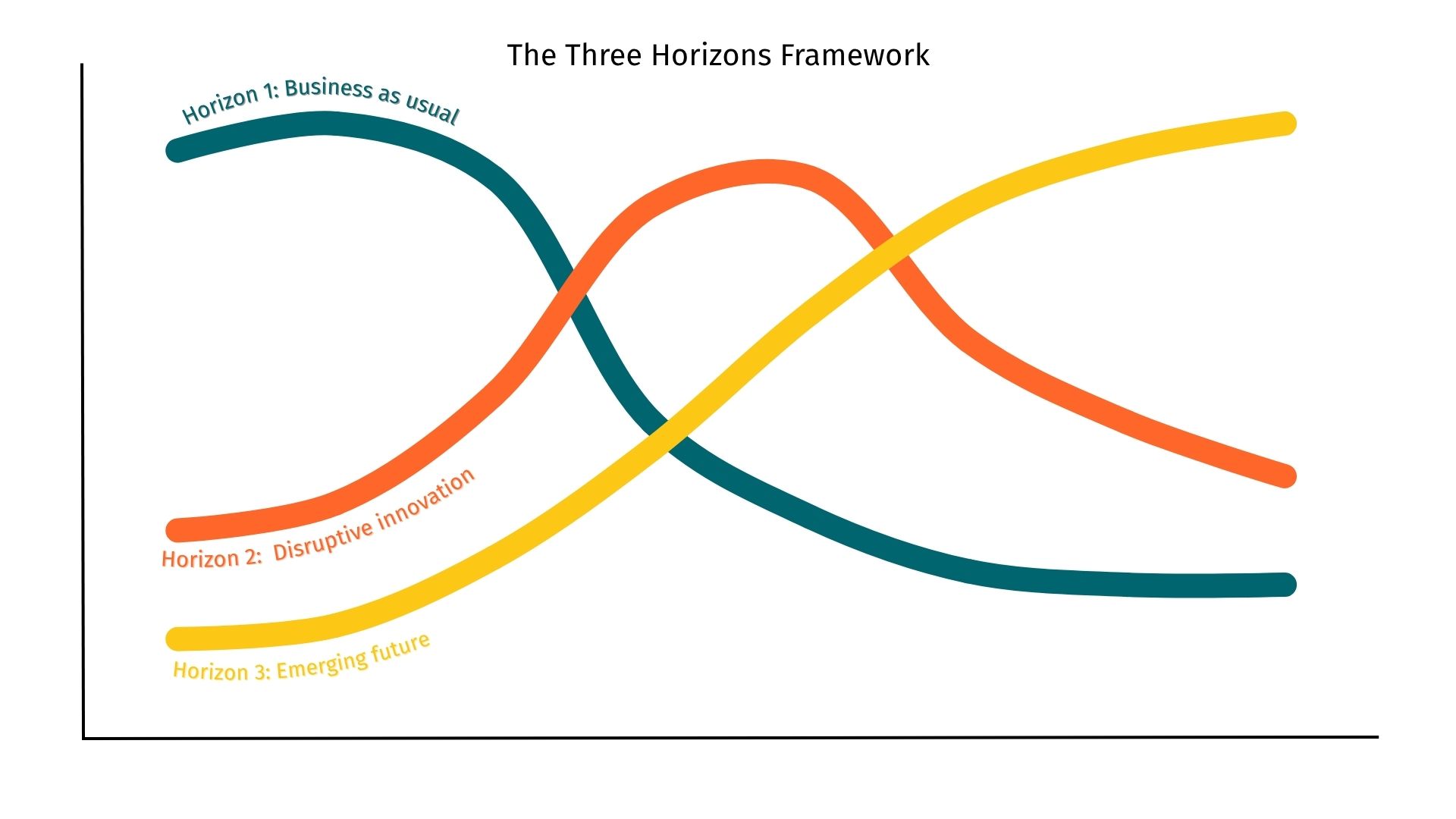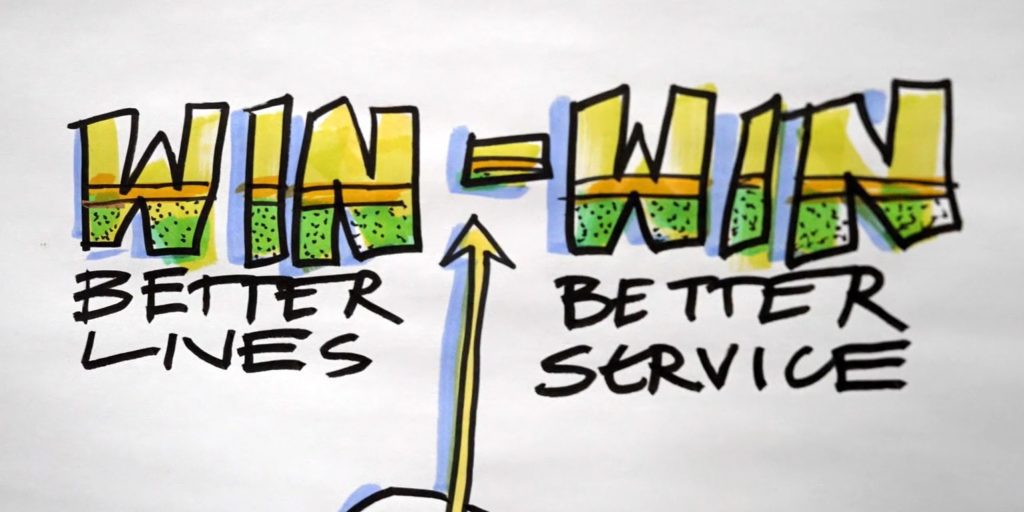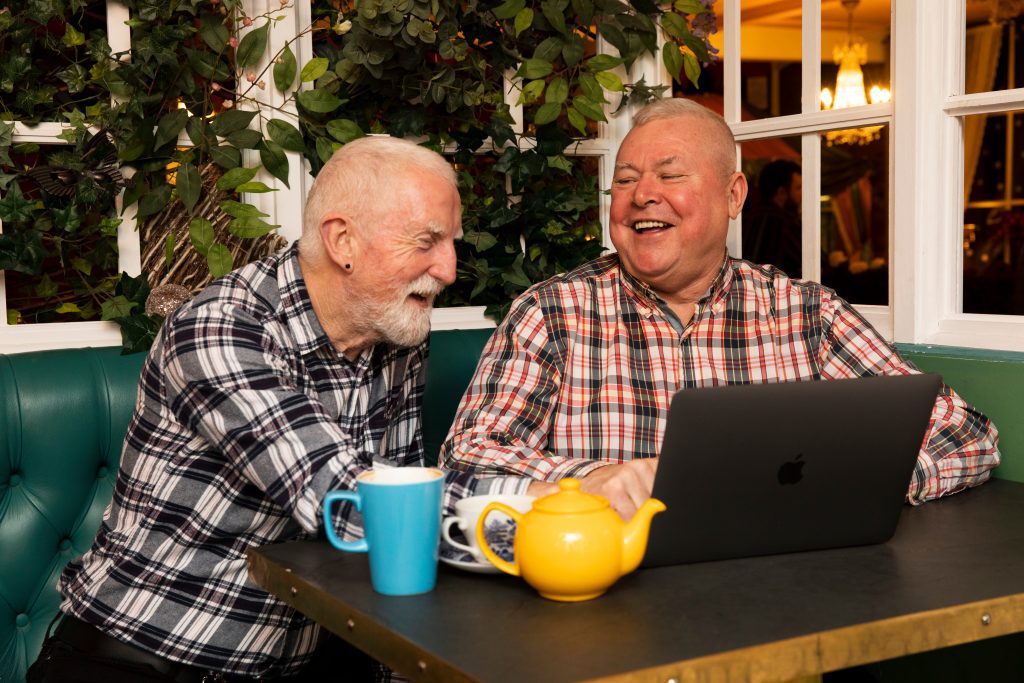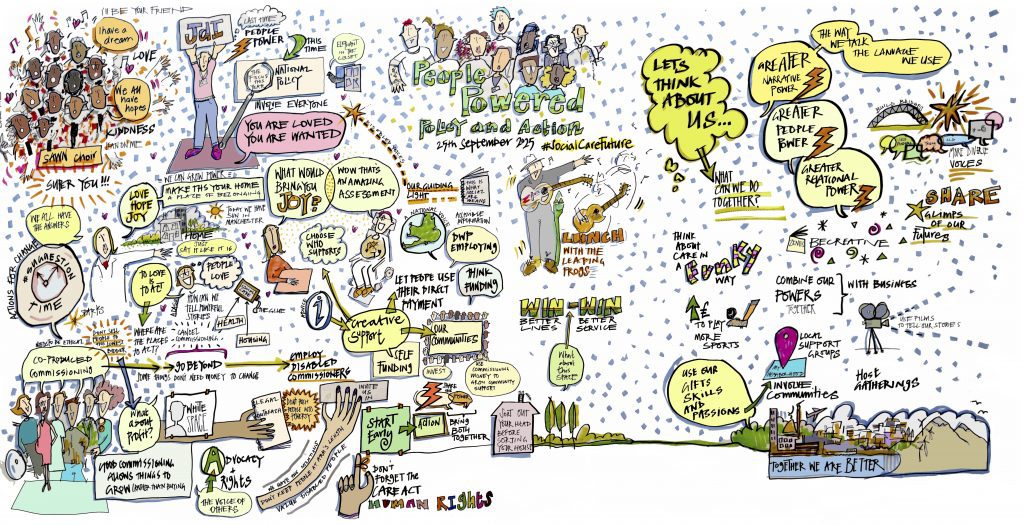By Neil Crowther
This week I had the honour of taking part in a day-long session organised by System Shift, which brought together funders with a range of narrative change practitioners to share lessons and ideas. I thought others, whether part of the #SocialCareMovement or otherwise involved in narrative change might be interested in he role narrative change has and is playing in #SocialCareFuture’s strategy and action, so I’m sharing an edited version of my remarks at the event here.
A future beyond social care?
#SocialCareFuture is a movement for social and system change, with a potentially misleading name… To be clear, our interest isn’t in establishing a future for ‘adult social care’, it’s about growing a better future for people and families who in our present context have cause to rely on adult social care to live our lives. That future – or ‘third horizon’ – could involve an entirely different concept, set of organising principles or ‘system’.
We often say they we were a movement ‘born of frustration’, but which is ‘powered by hope’.
Our chief frustration was with what we regarded as backsliding from the growing commitment to human rights and person centred support that had underpinned progress made over the previous decades. Despite the Care Act 2014 embodying many of these principles and ideas, its implementation was not actively supported by government and in the political and economic climate other ‘forces of conservatism’ were reasserting themselves. Our hope lay with the fact that we still saw many glimpses of possibility in the present and knew there were many who shared our dream of and worked towards an alternative future, but who didn’t at that time have a space or platform to come together.
We were frustrated at the absence of the voice of people with direct experience of drawing on social care to live their lives from the meeting rooms, conference platforms and media studios where debates about the future were taking place. But we took hope when we turned that frustration into action and mounted a three-day fringe event alongside the National Children’s and Adult Social Services Conference (NCASC) in 2018. The the energy that came from bringing together people who drew on or worked in adult social care lit the blue touch-paper that turned #SocialCareFuture from a hashtag to an influential people-led movement. This year the adult social care part of NCASC was co-organised by people who draw on social care, and people who draw on social care sat on all the top platforms and contributed to the debates.
And finally, we were deeply frustrated with the public narrative, not only in the media, but promulgated by much of the field itself: a bleak narrative of crisis, devoid of hope or possibility, in which the lives of people with reason to draw on support are almost literally invisible, and which painted them only as passive and vulnerable. The field remains very wedded to this mode of communication, believing it to be both an authentic account of the situation faced, and successful in leveraging parcels of money from the Treasury.
However, hope came from the fact that when invited, people wanted to tell a better story centred on hope and possibility and came together to co-author it. When we conducted public audience research to develop and frame that story we found not only that is capable of shifting understanding, but also that through doing so we could generate stronger support for investment and reform and greater optimism about doing so. People are now coming to realise that while the dominant crisis narrative around social care might secure extra sandbags as the river threatens to breach its banks each winter, it is doing little to help us adapt to the changing climate long term.
So our strategy centres on growing relational power by connecting people to share and generate solutions, on growing people power by elevating voices and on growing narrative power by changing the story.
What role is narrative playing in #SocialCareFuture’s work?
I was asked to share my thoughts on the roles that narrative change has and is playing in our movement and in achieving our goals.
While our original focus was on the final point below concerning public mindsets, I think it has played a far broader and deeper role:
It serves as a transmission belt: it’s a story that relocates power with people who draw on social care, calling for equality in life outcome while centring people as the authors of our own lives, drawing on support to live them. And it’s a tool that puts power in people’s hands to pursue change in their own lives and communities
It acts as a loadstar: #SocialCareFuture sits at the confluence of numerous tributaries of thought, practice and activism – from the disabled people’s independent living movement, self advocates and the inclusion movement to older people’s organisations, social workers pursuing so-called strength based or relational practice, people involved in promoting community power and asset based community development and those involved in anti-racism to name just a few. Co-authoring a story has helped create a sense of shared purpose and energy, to recognise the connected values and ideas we share and to build a ‘larger us’ in pursuit of them.
It helps with collective (re) imagining: the story has helped create what Geoff Mulgan called a ‘possibility space’ for people to step out of the day to day and imagine beyond industrialised, transactional time and task ‘care’, to believe in and begin to pursue alternate possibilities. This space – or these spaces – have opened up not only in the ones we’ve created, but also in many local places, including local councils, in the board rooms and staff meetings of provider organisations, amongst policy makers, in Parliamentary Committees and in the minds and lives of those of us who have reason to draw on social care to live them.
It’s capable of shifting the debate and moving public mindsets: finally, it offers a new language and set of ideas which have been widely adopted in the field, and which were shown via research to be capable of positively shifting public mindsets and of generating stronger support and optimism about change.
Strong currents
#SocialCareFuture has not, however, within the bounds of the immediate movement, enjoyed a scale of resources to shift the way the mass media frames social care or to reach the public and as a result our narrative has yet to penetrate public consciousness. Rather, our approach has been one of challenge, encouragement and supporting others to adopt the lessons and adapt their own approach.
But this is really difficult.
We still face a lot of scepticism, especially in a deeply challenging environment where people are wont to scream that ‘the sky is falling in’. This is not just in the face of the perceived ‘crisis in social care’, but because many of the prominent voices are traditional charities, wedded to campaign and communications methods that are short term by nature, with no strategic focus, professional interest in or understanding of narrative or mindset shifting. Changing this is made even more challenging given that, while there is lots of research evidence about how to shift mindsets, there is not yet a huge amount about the opportunity to secure the win:win of achieving immediate term strategic communications goals, whether policy advocacy or fundraising, and change over the long term. This is something that all of us focused on narrative change need to develop.
For a while some social media, and Twitter in particular, offered a workaround both of these resistant organisations and traditional news media, as well as offering a way to connect and mobilise diverse audiences. In many ways #SocialCareFuture grew in connection and influence through and because of Twitter. And now it’s died and nothing has taken its place. We can’t be alone in not knowing how to compensate for this. What learning is there out there in how organisations are navigating this new post Twitter world?
It takes a village to bring up a new narrative
The narrative change and pop culture expert Alice Sachradja reminds us that narrative change is about shifting underlying ideas, not surface language, and involves more than words. And she has asked us to imagine the task more as one of creating a mosaic made up of lots of separate parts, which could take all kinds of different forms, rather than one single initiative. That way of thinking offers an opportunity for a movement like ours, unconcerned as we are with branding or position. What participants in that task need to know is not the words to repeat, but what the final picture is that we’re striving to create together, and how their contribution can help. We’ll be thinking about this as we roll out a new programme of narrative change support for our members over the coming months.
#SocialCareFuture’s narrative is, as well as our own research, inspired by the work including that led by Joseph Rowntree Foundation on poverty and social housing, by research Anat Shenker Osorio did on human rights, by work I co- led on ageing, by work on anti-racism and thinking on talking about climate change. There are so many insights and lessons that can be drawn across different themes and issues, but it is only recently that they are being drawn together and synthesised. I would encourage more investment by funders in this, both because it will help strengthen narrative change work and its impact overall, and because it will support a wide range of progressive causes move forward without each having to find the resources to mount costly research projects, which are sometimes at risk of covering similar ground without offering new lessons or insights.
Do you care?
Moreover, we may make more progress by moving beyond single issue narrative change work and instead, acknowledging that ‘no cause is an island’, joining forces in changing our world. That could mean trying to identify a broader shared story and mindset shift we are all trying to bring about.
In Hilary Cottam’s latest book ‘The Work We Need’, she shares a definition of ‘care’ by political scientists Berenice Fisher and Joan Tronto which says that it is ‘everything we do to maintain and repair our world.’ If social progressives are looking for a shared idea around which to coalesce in the face of populism, and to bridge the political and social division we are living through, might it be ‘to care’?



